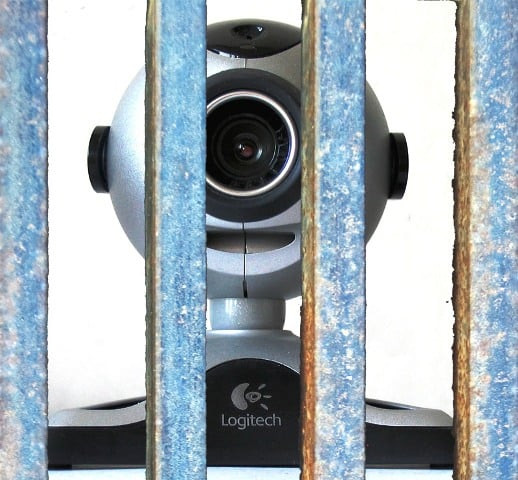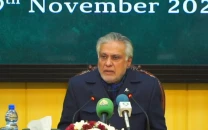Inside, but online: Video conferencing for inmates starts at Hyderabad jail
The prison has also opened a ‘welfare shop’ that sells vegetables grown on its 22 acres.

After Karachi, the Hyderabad Central Jail launched its video conferencing for inmates on Friday.
“We thank the judiciary for helping us with the funding,” said Jail Superintendent Pir Shabbir Jan Sarhindi while talking to the media. “Indians, Israelis and those under trial or convicted on terrorism charges are not allowed to use it,” he clarified.
The prison has a population of over 1,700 inmates but a capacity for 2,000. Of them, less than 350 belong to Hyderabad district while the rest are from other parts of Sindh. There are no foreigners here at present.
A computer in the video conference room allows an inmate to video conference only twice a week. Unlike PCO services, which charge Rs15 for a five-minute PTCL landline to mobile phone call and Rs10 for the landline, this video conferencing will be free initially.
Separately, a trust is building an information technology centre equipped with 10 computers for the use and training of inmates. The centre will be inaugurated this week. The government has given Rs100 million for all jails in the province to fulfill court orders.
“We have transformed the prison where acrimony between us (the jailors) and the prisoners has been replaced by a brotherly relationship,” said the ecstatic superintendent, telling the media that the inmates are free to go to any part of the jail, something previously unthinkable. Rioting has broken out in the past in jails across Sindh as prisoners fought to use mobile phones.
The prison has also opened a ‘welfare shop’ that sells vegetables grown on its 22 acres. Soon shops, being constructed in a commercial building next to the prison, will offer carpets, Sindhi caps, furniture and embroidery. “Customers can book orders too,” he added. Sindh’s jails are famous for producing beautiful work. Mazhar Ali, who is among the six men making a 12 by 14 feet carpet, said it takes them over a month to put together just a single piece. “The compound which houses the factories and the cultivable land used to be a no-go area under the control of wayward prisoners,” said Abdul Wahid, convict serving a life term who acts as the manager. “Now there are inmates here sewing clothes, making furniture, weaving carpets, embroidering clothes and caps.”
Prisoners who are not getting a share from the amount earned from the goods they produce have gone to court for one-third of the profit. The district and sessions court ordered the prison to pay them the share but the authorities challenged this in the SHC, citing the Sindh Public Procurement Rules.
Published in The Express Tribune, February 18th, 2012.










1729471601-0/image-(8)1729471601-0-208x130.webp)







COMMENTS
Comments are moderated and generally will be posted if they are on-topic and not abusive.
For more information, please see our Comments FAQ